Filter by
749 results found
-

Quantifying cultural ecosystem services: Disentangling the effects of management from landscape features
Tew et al. 2019 Cultural ecosystem services are recognised as important, but are notoriously difficult to define, measure and assign value to. This study of Thetford forest in the east UK uncovered the relationship between cultural values and land management practices, whilst controlling for the influence of landscape features, such as rivers and roads. The […] -
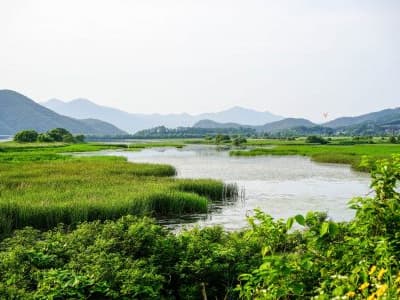
Ecosystem-based Adaptation: A review of the constraints
Nalau et al. 2018 Ecosystem-based Adaptation (EbA) is the preferred approach for adapting to climate change in the least developed and developing countries, in part because it has the capacity to address adaptation of both ecosystems and livelihoods simultaneously. This review paper looks at existing literature on the constraints on EbA use, categorised into: economic […] -

Recent divergence in the contributions of tropical and boreal forests to the terrestrial carbon sink
Tagesson et al. 2020 This paper used satellite data on land cover and a dynamic global vegetation model to estimate the impact of human land use and land cover changes (LULCC) on the contribution of different habitat types to the terrestrial carbon sink between 1992 and 2015. The authors found that tropical and boreal forests […] -

Governance principles for community-centered conservation in the post-2020 global biodiversity framework
Armitage et al. 2019 Conservation Science and Practice It is well established that Nature-based Solutions are often more effective if they are designed and implemented in a way that aligns with the perspectives and needs of local stakeholders. Community-centred conservation follows the same principle and some of the research in this area can be applied […] -

National mitigation potential from natural climate solutions in the tropics
Griscom et al. 2020 Philosophical Transactions of the Royal Society B This paper looks at the potential for natural climate solutions (NCS; a type of nature-based solution) for mitigating climate change in 79 tropical countries. 12 different NCS pathways were defined, split broadly into protection, management and restoration across multiple habitat types (savannahs, farmland, wetland […] -
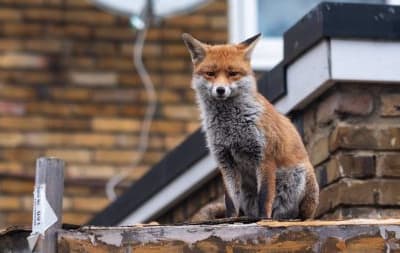
Nature-based approaches to managing climate change impacts in cities
Hobbie and Grimm 2020 Philosophical Transactions of the Royal Society B This paper reviews current evidence for how Nature-based Solutions can be used to reduce the vulnerability of cities to climate change. The authors give an overview of how certain features of cities amplify climatic hazards, such as the concentration of settlements around rivers and […] -

Greater stability of carbon capture in species-rich natural forests compared to species-poor plantations
Osuri et al. 2019 This study looked at the difference in C storage and rate of C sequestration between longer-lived plantations and natural forests, using 2000-2018 data on Enhanced Vegetation Index (EVI) from a natural experiment in the Western Ghats of India. C stocks in monodominant teak and Eucalyptus plantations were 30-50% lower than in […] -

Companies warm to Nature-based Solutions. Greenwashing?
Greenbiz magazine describes Nature-based Solutions as leveraging ‘nature’s inherent genius’. Nature loss puts companies’ supply chains, reputation and financial security at risk, and companies are starting to realise this, encouraged by the World Economic Forum and Business for Nature. According to Greenbiz, so far over 350 companies have made commitments to help reverse nature loss […] -
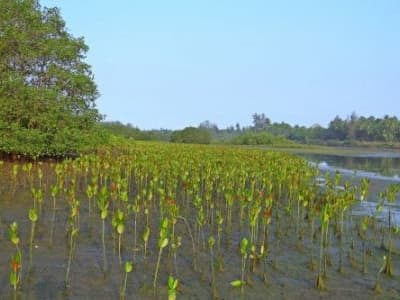
Restoring Sri Lanka’s mangroves
In 2015, Sri Lanka declared that they would protect all their mangrove forests, in order to restore the precious ecosystem services that they provide: carbon sequestration, coastal protection, fisheries support and more. Partnering with two non-profit organisations (Sudeesa and Seacology), the Sri Lankan government has started a programme to protect and replant 35,000 hectares of […] -
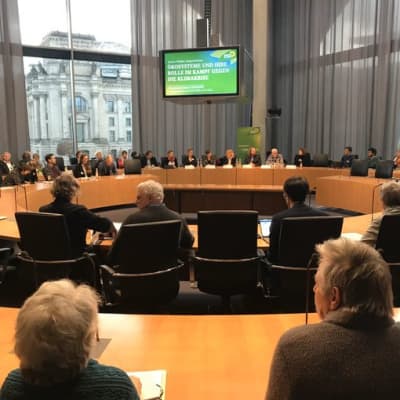
NbSI in the German Bundestag
We were invited by Green MP Steffi Lemke to share our understanding about Nature-based Solutions with a wide-ranging group of politicians, practitioners and scientists in the German Bundestag. This was part of a hearing on the importance of (and limits to) working with nature as a climate solution. There was much discussion about the vital […] -
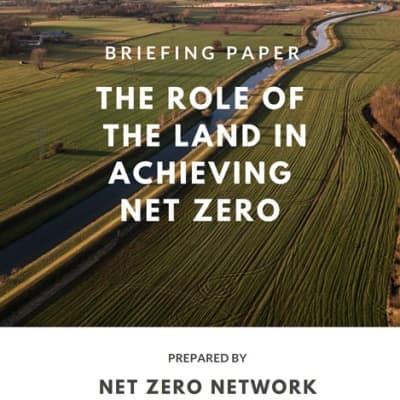
The role of the land in achieving Net Zero
Carbon dioxide emissions must be reduced to net zero to stop global warming. In addition to carbon dioxide, agriculture generates a great deal of methane and nitrous oxide. -
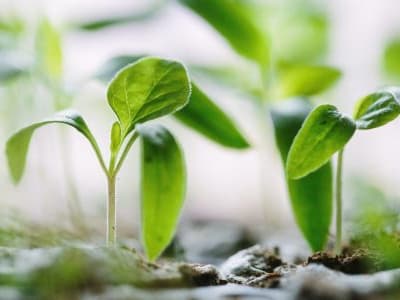
NbSI director interviewed by Bloomberg
‘I haven’t met any anti-tree people yet’ says Marc Benioff, CEO of Salesforce. This is perhaps because whilst tree planting can be a great thing (indeed, an effective Nature-based Solution with manifold benefits), it can also be harnessed by governments and incorporations as a ‘get out of jail card’ by making it appear like they […] -
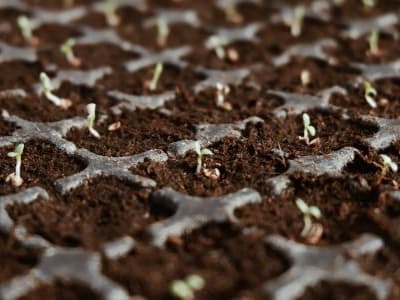
Radio 5 live: Pros and cons of tree-planting
On late-night radio, Nat Seddon discusses the importance of planting trees carefully and for the right reasons, and of ensuring other vital ecosystems, such as grasslands and peatlands in the UK, are not damaged in the process. Right trees in the right places (42 mins in)! -

Knowledge Mile Park in The Netherlands
A mile-long park is being constructed along a highly polluted street in Amsterdam, incorporating multiple nature-based solutions. The project was launched in 2015 by the Amsterdam University of Applied Sciences, and is being created through collaboration of 100 companies, 30 thousand residents and 60 thousand students. The Knowledge Mile will include two parks, 1600 square […] -
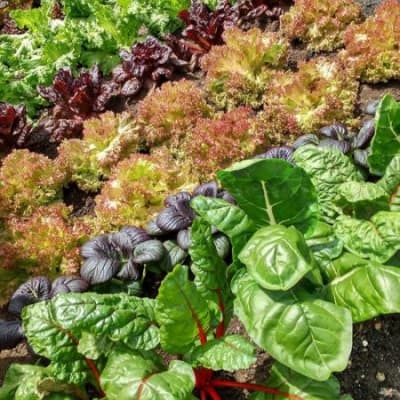
Community garden, Palermo, Sicily
A group of people came together back in 2006 to form a 10 thousand square meter urban organic allotment garden in Palmero, the city with the most green space in Italy. The goal is to grow environmentally and economically sustainable food, whilst connecting residents of the city with each other and their environment. There is […] -

Floating Agriculture in Bangladesh
Floating agriculture is a traditional practice in Bangladesh, which is now spreading between communities, allowing farmers to maintain or increase agricultural productivity in the face of increased monsoon season flooding. It involves weaving together aquatic plants, most commonly the invasive water hyacinth, to form floating beds that rise and fall with the water level. Crops […] -

Cocoa Agroforestry in Sierra Leone
Sierra Leone’s tropical rainforest is under threat from intensive agriculture, mining, logging and slash and burn agriculture for cocoa plantations. One major effort to prevent this is the introduction of cocoa agroforestry so that cocoa can be produced sustainably on the same land for many years, diminishing the need for further deforestation. This project was […] -
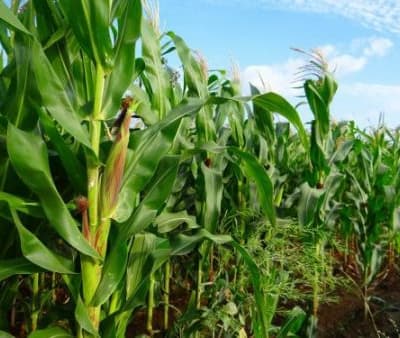
Push-pull biological control in Kenya
Changes in the climate drive shifts in the distribution and numbers of insects, plants and pathogens that are pests for agriculture. The ‘push-pull’ system has been widely implemented in Kenya to reduce loss of maize to pests, leading to increase in yields and net income, and concurrent reduction in the incidence of poverty. Napier grass […] -
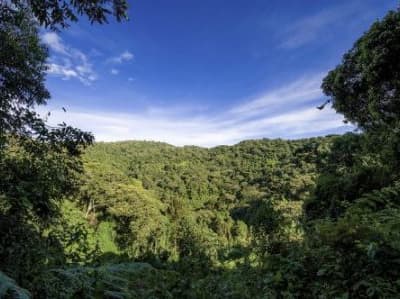
Montane Ecosystem-based Adaptation in Uganda
Near the Mount Elgon National Park in 2014-15, about 600 households received training in Ecosystem-based Adaptation measures to implement themselves. A number of different approaches were used, notably creation of trenches, ridges and dams to control the flow of water, and establishment of grass strips and planting of trees both within and outside of farms. […] -
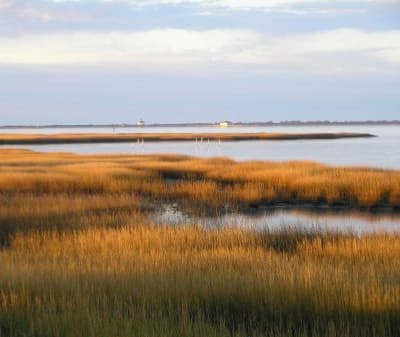
Salt marshes in the Dutch Wadden Sea
The Dutch coast is protected from flooding by long dikes – earthen embakments along the shore that act as barriers to waves. Saltmarsh has been constructed on the seaward side of 25km of dike. To cope with sea level rise and increased frequency and severity of storms, the flood defence must be enhanced. Models of […] -

Oyster reefs in Bangladesh and the Gulf of Mexico
Oyster reefs provide a barrier to waves, protecting coasts from the impact of storms and reducing erosion and flooding. However, about 85% of natural oyster reefs have been lost due to harvesting by humans. Artificial breakwater reefs can be made by placing bags of loose shells on the seabed, or by allowing concrete rings to […] -
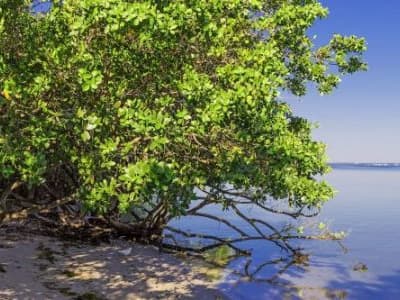
Mangroves protected communities from Cyclone Bulbul
Evidence is emerging that the Sundarbans Mangrove Forest protected communities in India and Bangladesh from some of the worst impacts of Cyclone Bulbul on November 9th 2019. The forest is reported to have reduced wind speed by around 20 kilometres an hour and thereby protected the southern Bengal region from the fury of the storm. […] -
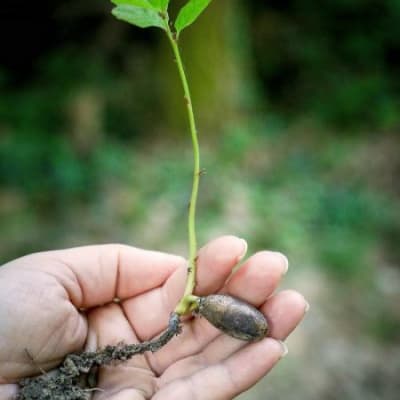
Bloomberg: Planting trees isn’t a simple solution to climate change
After the launch last week of the World Economic Forum’s Trillion Trees Platform, Nat Seddon talks to Bloomberg about the importance of planting the right species in the right places, and of ensuring that tree-planting doesn’t come at the cost of protecting and restoring intact ecosystems or distract from the need to keep fossil fuels […] -

Refugee camp gardens in Iraq
Running garden competitions for residents of refugee camps in northern Iraq proved to be an effective way to help reconnect people with their natural surroundings and communities. Participants were able to obtain plants from a local nursery and were given advice on how to safely recycle grey water for nurturing plants. The camp was transformed […] -
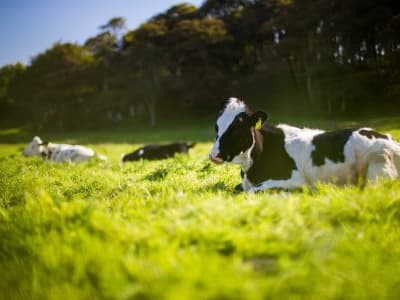
Committee on Climate Change: 22% of UK farmland must be used to tackle climate change
The Committee on Climate Change (CCC) has published a new report on how UK land use must change in order to meet the government’s net-zero emissions target. A key recommendation was for 22% of UK agricultural land to be converted into habitats designed for carbon sequestration. This will include restoration of at least 50% of […]
